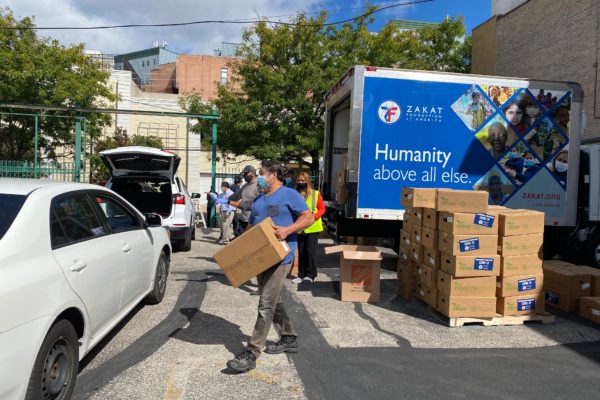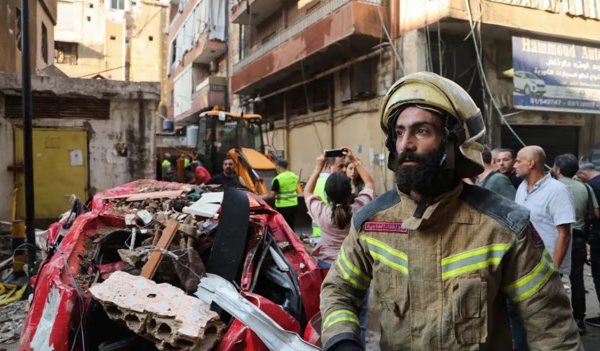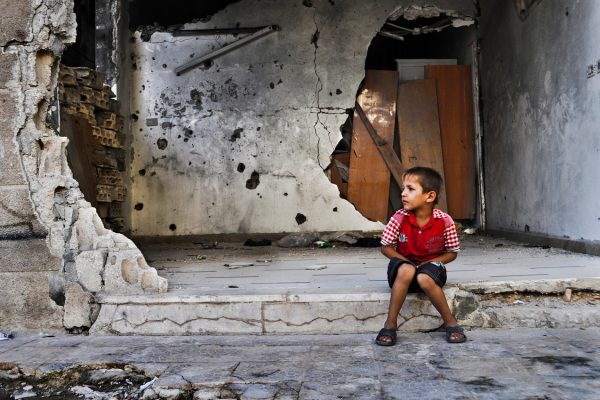It’s much easier to give to a charitable cause when we can afford to do so. And focusing on giving at least a little bit helps open our minds and hearts to giving regularly.
It’s much easier to give to a charitable cause when we can afford to do so. And focusing on giving at least a little bit helps open our minds and hearts to giving regularly.
Islamic aid and Islam’s overall approach to charity can change the world.
Islam provides a sustainable model for charitable giving. It doesn’t ask the poor to burden themselves with mandatory charity (Zakat al-Mal), but it doesn’t exempt them from voluntary giving (sadaqah) either. Nor does it demand a large percentage of anyone’s wealth.
Zakat al-Mal prioritizes everyday financial obligations, and only Muslims whose wealth reaches or crosses a threshold (called nisab in Arabic) after paying living expenses must pay 2.5% of their excess wealth.
And that isn’t just any excess wealth that it needs to be paid on. A holiday bonus that gets spent just days or weeks after it’s deposited into a bank account wouldn’t factor in here. It’s specifically excess wealth that a Muslim has had for one full lunar year.
How can Islamic aid make a difference?
Sustainability comes first. Islamic aid can provide a long-term, positive impact on under-resourced communities.
In an increasingly digital world, it is more acceptable and accessible to give Zakat and Sadaqah to different parts of our communities, cities, states, countries, continents, or anywhere else in the world. We are connected, and not just through technology.
Our humanity connects us, and it’s only when we put humanity above all else that we can overcome differences and unite through compassion.

It’s sustainable specifically because it’s reasonable. It doesn’t hurt the payer to give. Unlike taxes, the rate remains the same small proportion of one’s wealth. And there aren’t exemptions for the incredibly wealthy.
On the contrary, there is more incentive to give when one makes more (though it’s not considered an obligation).
Abu Huraira reported Allah’s Messenger (peace be upon him) as saying: “Charity does not decrease wealth, no one forgives another except that Allah increases his honor, and no one humbles himself for the sake of Allah except that Allah raises his status.”
It’s much easier to give to a charitable cause when we can afford to do so. And focusing on giving at least a little bit helps open our minds and hearts to giving regularly. That only adds to its sustainability.
Who does it really help?
Everybody in the society practicing Islamic aid and giving will be able to see just how much it impacts different communities.
Rather than the concept of trickle-down economics, where tax breaks and benefits for corporations are said to benefit the entire society but in reality only expand the wealth gap, Islamic aid as a common and standard practice forces accountability on the wealthy. It holds them responsible for paying their fair share — just like everyone else — to benefit those who quite literally cannot afford to do so or are physically or mentally incapable.
That accountability imposed on the rich reduces resentment and lessens class struggle. Although that struggle would exist, it would limit just how out of hand it could become. It would prevent, say, a billionaire from hoarding wealth that could break an entire continent free from poverty.
Islamic aid provides a foundation on which a society can support itself. It also allows that society to — if capable — extend support to neighboring or even distant societies.
With Hajj season approaching and thus Eid al-Adha, we’ll see Muslims around the world celebrate together thanks to Islamic aid like udhiyah (qurbani). Many Muslims around the world don’t eat meat throughout the year, not by choice, but because they cannot afford to. They only eat it on Eid celebrations, when their brothers and sisters in Islam send nourishing food to them.
What is an example of Islamic aid
Although Islamic aid is a broad term that overlaps with charitable giving that isn’t necessarily tied to Islam, it also encompasses forms of giving that are unique to Muslims. For example, giving udhiyah (qurbani) is a Muslim practice, as is sadaqah jariyah (ever-flowing, ongoing charity).
Sadaqah jariyah is voluntary, first and foremost. It’s a way to provide a long-term benefit, providing a tangible or conceptual resource. That could mean building a water well, or a school. In Islam, we believe that someone who provides such positive resources to benefit others will receive blessings for every individual it helps.
In other words: If I were to build a water well to provide clean water, I would be rewarded spiritually for every human or animal who drank from it. That extends beyond my own lifetime, too. And the inverse is part of our beliefs, too. In short: If I created or spread something harmful, I would carry the sin for every person I harmed, even beyond my lifetime.
It was narrated from Abu Hurairah that the Messenger of Allah said: “When a man dies all his good deeds come to an end except three: Ongoing charity (sadaqah jariyah), beneficial knowledge and a righteous son who prays for him.”
Islamic aid and its long-term benefits
Islamic aid provides hope that a society can be founded upon respectfully uplifting its needy and humbling its wealthy. It can be a true uniting factor as it becomes increasingly natural to support one another purely because it is good to do so.
It’ll inspire generations to do the same, and its impacts will spread, as they have, to the world’s different regions.





